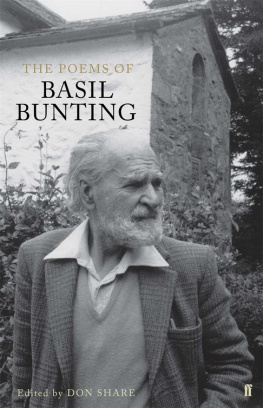Bunting - Lets Write a Short Story!
Here you can read online Bunting - Lets Write a Short Story! full text of the book (entire story) in english for free. Download pdf and epub, get meaning, cover and reviews about this ebook. year: 2012, genre: Detective and thriller. Description of the work, (preface) as well as reviews are available. Best literature library LitArk.com created for fans of good reading and offers a wide selection of genres:
Romance novel
Science fiction
Adventure
Detective
Science
History
Home and family
Prose
Art
Politics
Computer
Non-fiction
Religion
Business
Children
Humor
Choose a favorite category and find really read worthwhile books. Enjoy immersion in the world of imagination, feel the emotions of the characters or learn something new for yourself, make an fascinating discovery.

- Book:Lets Write a Short Story!
- Author:
- Genre:
- Year:2012
- Rating:4 / 5
- Favourites:Add to favourites
- Your mark:
- 80
- 1
- 2
- 3
- 4
- 5
Lets Write a Short Story!: summary, description and annotation
We offer to read an annotation, description, summary or preface (depends on what the author of the book "Lets Write a Short Story!" wrote himself). If you haven't found the necessary information about the book — write in the comments, we will try to find it.
Bunting: author's other books
Who wrote Lets Write a Short Story!? Find out the surname, the name of the author of the book and a list of all author's works by series.
Lets Write a Short Story! — read online for free the complete book (whole text) full work
Below is the text of the book, divided by pages. System saving the place of the last page read, allows you to conveniently read the book "Lets Write a Short Story!" online for free, without having to search again every time where you left off. Put a bookmark, and you can go to the page where you finished reading at any time.
Font size:
Interval:
Bookmark:

Copyright 2012 by The Write Practice
TheWritePractice.com
Why publishing short stories is more competitive thanHarvard, and why you should submit them anyway.
What is a short story and how do you get onepublished?
How is a short story structured differently than anovel? What subjects do magazines love to publish? How do you save dozens ofhours by recycling?
Craft advice from literary classics and prize-winning writers.
At some point, youre probably going to get stuck. Getrid of writers block faster.
A few tips to sharpen up your story quickly.
Youre a little protective of your story. Iunderstand. Heres how to prepare yourself to let it go.
Why short stories could be the new online platform forfiction writers.
Writing is about more than getting famous and makingmoney. Make sure you connect to the deeper meaning of the craft.
There are thousands of literary magazines, making itconfusing and overwhelming for a new writer. Heres a list to help get youstarted.
Before you submit your story, make sure youveremembered everything.
Ifyou google Harvard Acceptance Rate, youll find that in 2012, out of over34,000 students who applied only 5.9 percent got in. Those are not great odds.Think of sixteen other people you know. If you all applied to Harvard, only oneof you would get in, and it probably wouldnt be you. However, Harvards acceptancerate is nothing compared to the top literary magazines.
Thetop literary magazines in America usually get about 1,000 submissions per month,12,000 per year. A few submissions come from literary agents on behalf of thewriters they work for, but most come from unknown or mostly unknown writersjust trying to get their big break in the literary world. Of the estimated12,000 submissions a magazine like The New Yorker gets per year, theypick only about 50. Thats 0.4 percent.
Toput that in perspective, think about 249 people you know. If all of yousubmitted to a literary magazine, only one of your stories would be accepted.And it almost certainly wouldnt be you.
Itgets worse. Between July 2011 and July 2012, about 970 stories were submittedto Glimmer Train Stories by writers who use the popular submissiontracking service, Duotrope. Only one was published. Thats 0.1 percent.
Thinkabout 1,000 people you know....
Its50 times harder to get into Glimmer Train than it is to get intoHarvard, according to Duotropes stats.
Nowonder writers have a reputation for being alcoholics. Who needs a drink afterhearing that?
Notall literary magazines are this difficult. Daily Science Fiction, apopular online magazine that delivers a new science fiction or fantasy story toreaders inboxes every weekday, has an acceptance rate of a little more than 3percent. However, of all the magazines I looked at as I researched this book,that was one of the highest. I hope you didnt think writing and publishingshort stories was going to be easy.
Whatdo these stats tell you? If you want to get your short fiction published, notjust in one magazine but to have pieces published in several of them, you needto get serious. You can break into the literary magazine scene, but it willtake perseverance, hard work, and a little luck.
Thereasons for writing short stories, though, make it well worth facing the obstacles.Here are eight:
Howdo you practice writing?
Thiswas the question that led me to start The Write Practice in 2011. Learningexperts like Geoffrey Colvin and Malcolm Gladwell say if you practice at a taskdeliberately, you will improve far more quickly than if you just perform thetask for fun and with no forethought.
TheWrite Practice was my attempt to give writers a place to practice writingdeliberately, for fifteen minutes a day, six times a week, and apparently ithas hit a nerve. Weve had hundreds of writers participate in our practicingcommunity. Ive talked to dozens of high profile people in the writing worldabout how to improve your writing through practice, including editors of someof the top literary magazines, creative writing professors, and even PulitzerPrize winning authors. All of this has led me to the conclusion that one of thebest ways to improve at the craft of writing is by writing short stories.
Topractice writing deliberately you have to write finished pieces over and overagain. Writing finished pieces can motivate you to persevere through themoments when writing itself is difficult. Deliberate practice is oftenunsatisfying. To improve, its helpful to have the reward of a finished pieceand the chance of publication to motivate you through writers block.1
Evenmore importantly, to practice deliberately you have to put your writing skillsto the test. Researchers as early as the 1890s have found that when people aretested, they improve significantly, even people with years of experience at atask.2 Compare that to how you write. Too many of us write whateverwe feel like, and then wonder why were not getting better (or worse, whyothers arent responding to our art). Its fine to write as a hobby. Writingis fun. However, if you just write what you feel like you will improve a lotslower than you will if you test yourself by constantly submitting your workfor publication.
Youcan write novels and publish novels to test yourself, but novels (obviously)take a lot longer to write than short stories. Thats why MFA writing programsacross the country rely on short stories as deliberate practice for writingfiction.
Ifyou want to get better at writing fiction, write and submit a lot of shortstories.
Ionce wrote a short story that I thought was the best piece of literature since TheBrothers Karamozov. I thought magazines would beg me to publish my story. Isent it to five of them, and they all rejected it. I sent the story to fivemore. I received five more rejection slips. I used the rejection slips ascoasters and tried to spill as much coffee as I could on them. A year later, Ifinally realized the story wasnt any good.
Allthe writers I know have had their work rejected, from Stephen King to J.K.Rowling to my chiropractor who writes novels in his spare time. If you want tobe a writer, expect rejection. Its actually a badge of honor.
Thebenefit of writing short stories is that they allow you to get rejected sooner.If you write a novel, it could take years for your work to be rejected. Withshort stories, you could be rejected in weeks. Rejection is the best teacheryou can have. You will learn more about writing from having your work rejectedthan from a years worth of writing courses.
As JohnKeats said, "Failure is, in a sense, the highway to success, inasmuch asevery discovery of what is false leads us to seek earnestly after what is true,and every fresh experience points out some form of error which we shallafterwards carefully avoid."
Therewards for publishing in a leading literary magazine are huge. Agents look toliterary magazines to find talented emerging writers, Linda Swanson-Davies,editor of Glimmer Train, told me. Their plates are full, too. Itshelpful to be able to read a collection of stories vetted by editors whosetaste and opinions they respect. After each issue of Glimmer Train comes out,we are contacted by agents whove read stories they loved and are interested inrepresenting the authors. If your goal is to publish a book, having firstpublished fiction in literary magazines gives publishers more confidence in themerit and marketability of an authors work.
Font size:
Interval:
Bookmark:
Similar books «Lets Write a Short Story!»
Look at similar books to Lets Write a Short Story!. We have selected literature similar in name and meaning in the hope of providing readers with more options to find new, interesting, not yet read works.
Discussion, reviews of the book Lets Write a Short Story! and just readers' own opinions. Leave your comments, write what you think about the work, its meaning or the main characters. Specify what exactly you liked and what you didn't like, and why you think so.


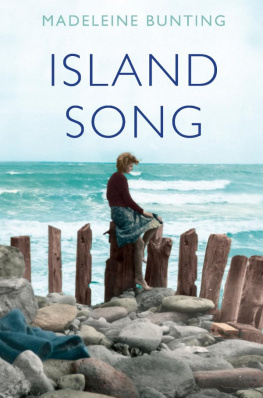
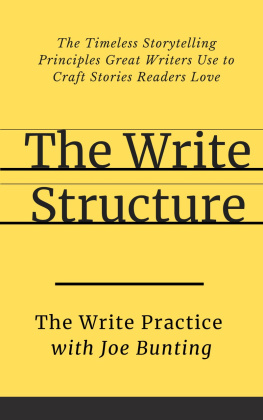

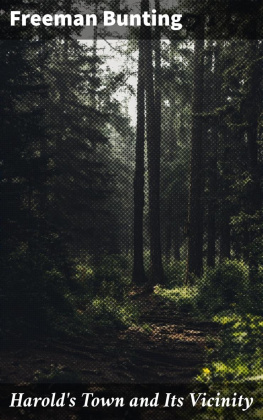
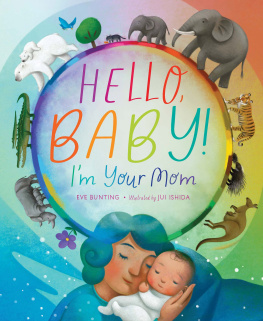
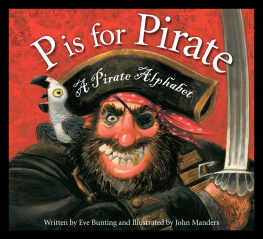


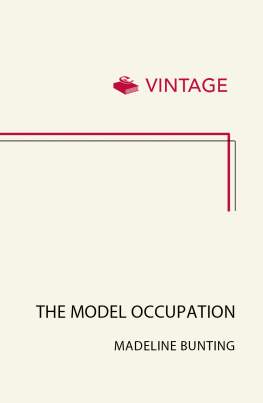
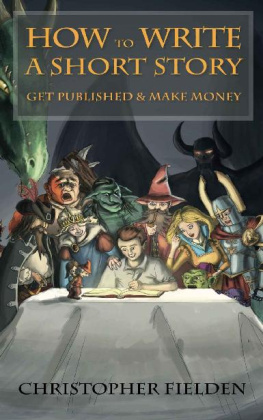
![Madeleine Bunting [Madeleine Bunting ] - Willing Slaves](/uploads/posts/book/142225/thumbs/madeleine-bunting-madeleine-bunting-willing.jpg)
